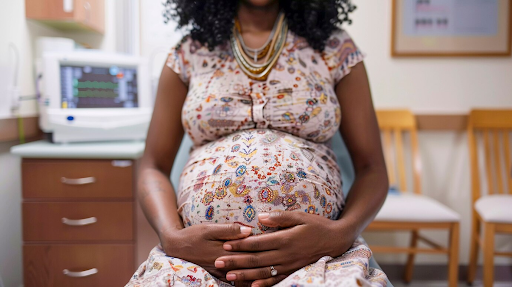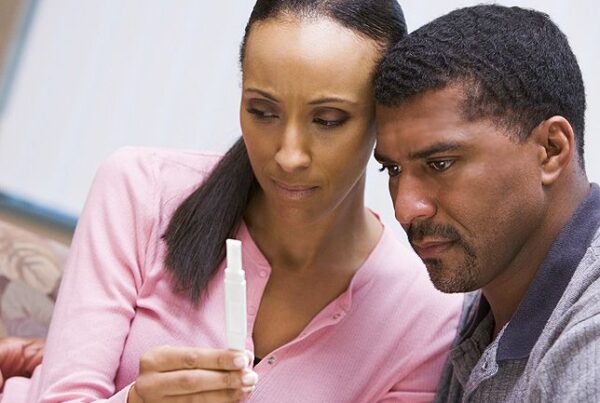If you’re trying to conceive, you may wonder if painful periods also known as dysmenorrhea can impact your fertility. Most women have experienced menstrual pain at one time or another. Dysmenorrhea occurs up to three days before the period and while painful periods or abdominal cramps in particular won’t stop you from getting pregnant, however, whatever is causing the bad cramps may possibly impact your fertility. Painful periods could be a sign of infertility. Period.
Intense menstrual cramps can be caused by a number of diseases that impact fertility. Some of these diseases develop over time, even years and this is why a woman might start having problems with cramps even when she didn’t have the issue before.
Today we are going to discuss some of the conditions that can cause abdominal pain and also impact negatively on fertility. They include endometriosis, fibroids, adenomyosis, ovarian cysts and Pelvic Inflammatory Disease (PID) among others.
Cramps are generally caused by prostaglandins which are naturally occurring chemicals found in tissues throughout the body, including in the uterus. Prostaglandins play a role in the regulation of inflammation, cell growth, regulation of body temperature, and smooth muscle constriction and dilation and also play an important role in the uterus.
During menstruation, prostaglandins trigger the uterine muscles to contract helping to expel the uterine lining and also are important in inducing labour contractions and childbirth.
Abnormally high levels of prostaglandins can trigger uterine contractions that are more intense and can temporarily cut off oxygen to parts of the muscle. This lack of oxygen leads to painful period cramps.
As teenagers, women may experience worse period cramps because they naturally have higher levels of prostaglandins. Usually, the levels go down with advancing age and the cramps become less intense. Women may also have easier periods after childbirth.
There are two types of dysmenorrhea: primary and secondary. Period pain caused by the normal activity of prostaglandins is called primary dysmenorrhea. Primary dysmenorrhea is normal and very common, as it’s correlated with the natural shedding of the uterine lining in preparation for the start of the next menstrual cycle. Normally, as mentioned earlier, this should not negatively impact on fertility.
On the other hand, period cramps caused or worsened by other diseases or abnormalities of the reproductive system are called secondary dysmenorrhea and it is this that is often associated with female infertility. Secondary dysmenorrhea indicates underlying conditions that may cause infertility. If you’ve always had pain-free periods or moderate cramps during menstruation but have started to experience painful menstruation—it could be a symptom of secondary dysmenorrhea.
One of the common causes for abnormal period cramps that can impact fertility is Endometriosis. This is one condition that is notorious for causing not only bad period cramps but also infertility. Endometriosis is the most common cause of painful menstruation and infertility.
If you have endometriosis, it is usually because the endometrium (tissue that usually lines the uterus) grows in places outside of the uterus. It is estimated that about half of all women that struggle to conceive may have endometriosis. The challenge is that women with endometriosis frequently go years undiagnosed.
Fibroids could also cause abdominal cramps. They are an abnormal mass of tissue that grows within the smooth muscle of the uterus. Although almost always non-cancerous, many women never discover they have fibroids. However, the fibroids occasionally can cause pain, lower fertility, and possibly increase the risk of miscarriage.
Another possible cause of bad menstrual cramps that can impact fertility is pelvic inflammatory disease (PID) – caused by an infection in the reproductive organs. It leads to the formation of scar tissue, which looks like webbing between the ovaries, fallopian tubes, and uterus. It is the most common cause of blocked fallopian tubes.
Adenomyosis is another condition to be wary of. It occurs when endometrium grows within and into the muscle of the uterus unlike endometriosis, where endometrium grows outside of the uterus. It’s also different than fibroids, which is a mass of muscle tissue that grows. Adenomyosis can cause painful and heavy periods but it’s unclear whether or not it affects fertility.
You may also experience pelvic pain even when you’re not expecting your period. For instance, there are women who experience ovulation pain occasionally or every month. Ovulation is not normal if it interferes with your daily living, causes painful sexual intercourse, or is severe (even if sudden). Ovulation pain can be a symptom of endometriosis. Ovulation pain can be so severe in some women that it prevents them from having sex when they are most likely to conceive. You should talk to your doctor if this is happening to you.
Ovarian cysts are also often implicated. These are fluid-filled sacs that most commonly form in the ovaries resulting in painful cramps. While cysts are not cancerous and most will clear on their own, they may cause problems with fertility if they form in delicate areas such as the fallopian tubes or ovaries, particularly if the cysts are large.
Pain and sex don’t mix, and normally sex should not hurt. However some women experience painful intercourse no matter what time of the month it is. If you’re trying to get pregnant, and pain is preventing you from having frequent sex, that can certainly lower your odds of conception.
Suffering in silence is not necessary. If you’re experiencing painful periods or pelvic pain or painful sex, it’s important you talk to a specialist. The solution may be medical and surgery could be a possible treatment option for period pain, particularly if the pain is caused by endometriosis, fibroids, or some other kind of internal adhesions.
In severe cases, hysterectomy (removing the uterus) may be recommended for period pain. However this is not an option for women that still plan to have children, besides, this doesn’t always completely eliminate all pelvic pain.
While most instances of dysmenorrhea should not cause alarm for potential infertility, it is always advisable to consult a gynecologist whenever you experience unusually painful menstruation. Moreover, it is always advisable to get a pelvic checkup from time to time, to protect yourself from any reproductive health complications.





